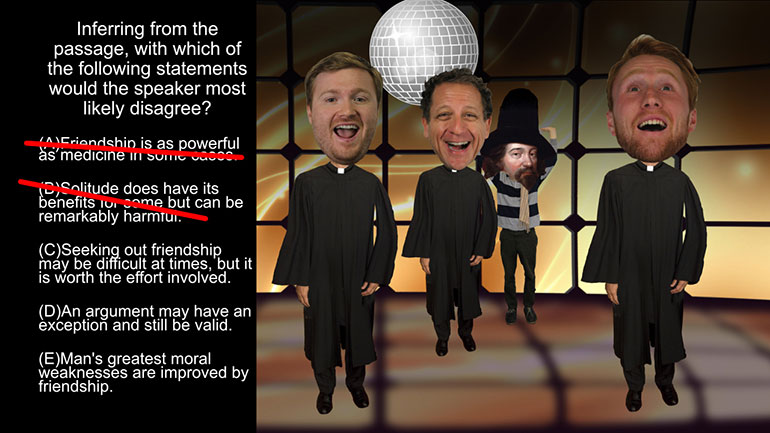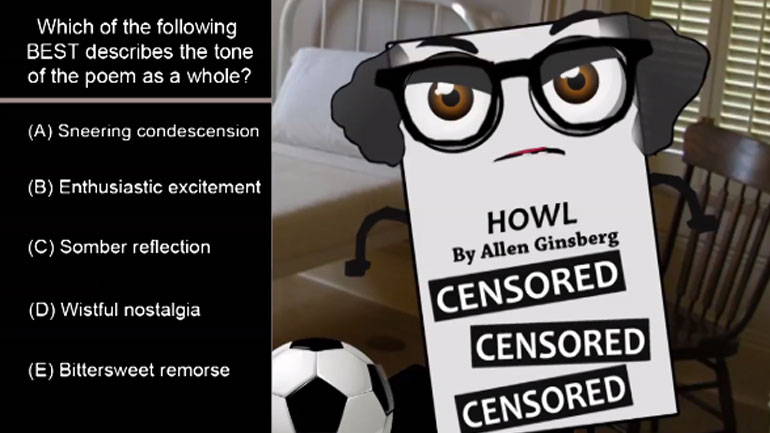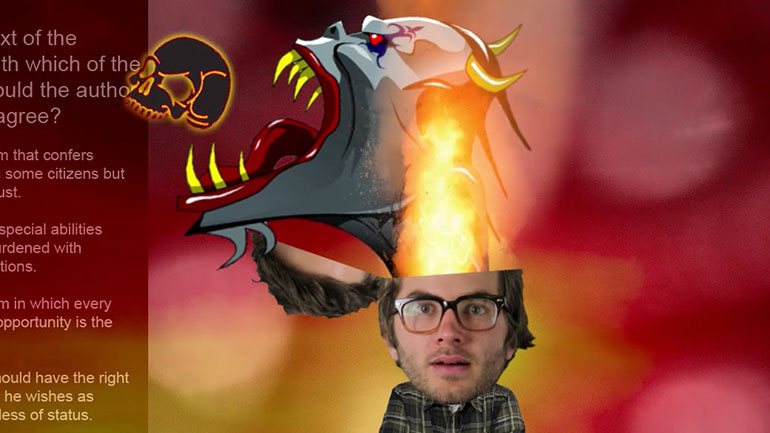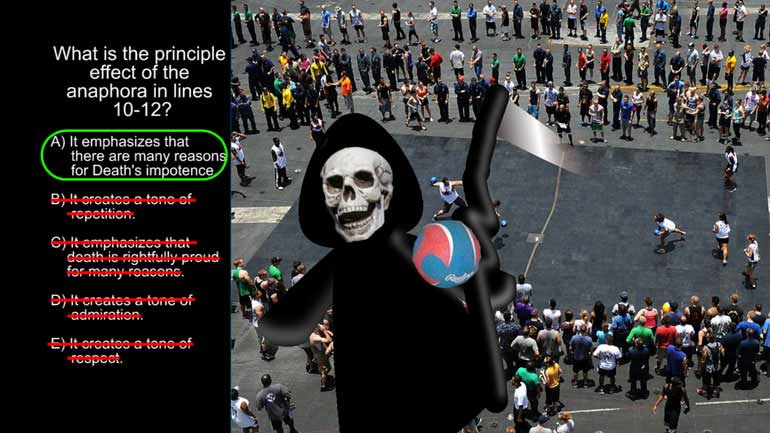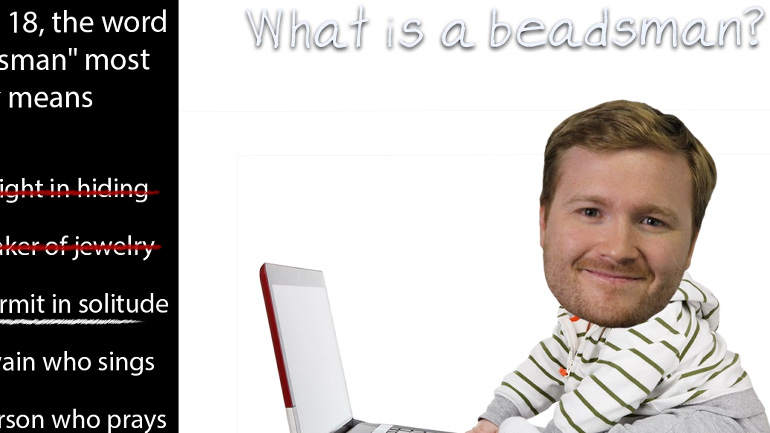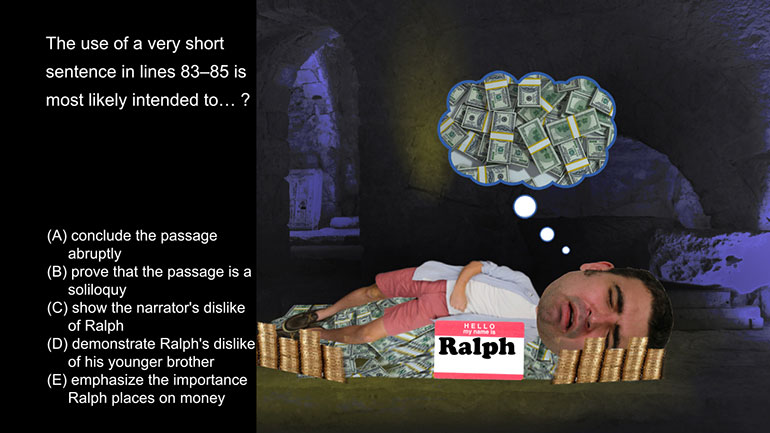ShmoopTube
Where Monty Python meets your 10th grade teacher.
Search Thousands of Shmoop Videos
Voice and Tone Videos 16 videos
AP English Literature and Composition 1.4 Passage Drill 1. Which of the following best describes the speaker's attitude towards immortality?
AP English Literature and Composition 1.3 Passage Drill 2. The author's tone in regard to friendship between monarchs and servants is best des...
AP English Literature and Composition 1.7 Passage Drill 2. Inferring from the passage, with which of the following statements would the speake...
AP English Literature and Composition 1.3 Passage Drill 3 234 Views
Share It!
Description:
AP English Literature and Composition 1.3 Passage Drill 3. From the passage, one can infer which of the following of Amory's view of pacifism?
Transcript
- 00:03
It's time for your daily dose of shmoop... Better get cozy with this passage... it's
- 00:07
going to be your friend for a while... hit pause and check it out...
- 00:34
From the passage, one can infer which of the following of Amory's view of pacifism?
- 00:39
I. He views it as suspect and unpatriotic.
- 00:42
II. He views it as exemplifying Burne's "primal honesty."
Full Transcript
- 00:47
III. He views it as futile and anachronistic.
- 00:50
And here are the potential answers...
- 00:55
These Roman numeral questions are nice, because we really only have to check out THREE choices rather than FIVE.
- 01:01
For those who don't count arithmetic as one of their strong suits... three is less than
- 01:05
five. You can double-check on your fingers if you're not buying it.
- 01:08
Okay, first up -- "He views it as suspect and unpatriotic."
- 01:12
Does this describe Amory's view of pacifism?
- 01:14
They're trying to trip us up here, because yeah -- he does express some suspicion in
- 01:19
lines 29 through 34...
- 01:21
...but the unpatriotic part? No, nothing to support it... which makes Roman numeral one...false.
- 01:27
Next -- "He views it as exemplifying Burne's "primal honesty."
- 01:32
"Primal honesty" is in quotes, which means we can expect that exact phrase to appear
- 01:36
somewhere in the passage...
- 01:37
...once we finally track it down -- they put it at the very end of the passage, sneaky
- 01:44
devils -- we can see evidence that, yes indeedy, this tells us something about Amory's view of pacifism.
- 01:52
So numero dos appears to be true... What about the third one -- "He views it as
- 01:57
futile and anachronistic?"
- 02:00
Line 44 spells things out for us here... yeah, Amory describes pacifism as futile...
- 02:06
And what about "anachronistic?" What, is he afraid of spiders or something?
- 02:10
Actually, anachronistic has to do with something that doesn't quite fit with its time...
- 02:19
...much like Amory describes pacifism in lines 23 to 24.
- 02:23
So Two and Three are true, making the correct option... letter B.
- 02:26
Three cheers for Roman numerals.
Related Videos
AP English Literature and Composition 1.2 Passage Drill 4. As which of the following is the object being personified?
AP English Literature and Composition 1.4 Passage Drill 3. How is Burne's view of pacifism best characterized in lines 57 through 67?
AP English Literature and Composition 1.6 Passage Drill 5. Death is primarily characterized as what?
AP English Literature and Composition 1.7 Passage Drill 5. Which line indicates the turn or shift in this poem?
AP English Literature and Composition 1.9 Passage Drill 4. Lines 32-34 are best understood to mean what?


